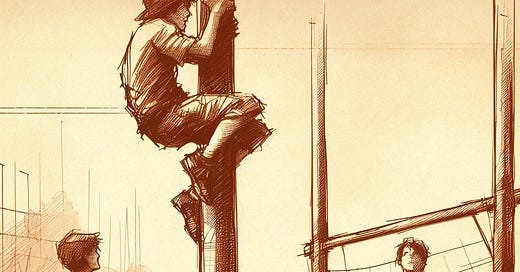There is a pleasure, sure, in being mad, which none but madmen know. —John Dryden
There was no simple way to say it, so he just said it.
“Almost four years ago I was in a car accident. I hit my head. When I woke up, I saw a rift floating above everybody’s head. Like a tear through reality.”
Celeste’s face didn’t change. He decided that he didn’t ever want …
Keep reading with a 7-day free trial
Subscribe to The Open Author to keep reading this post and get 7 days of free access to the full post archives.

